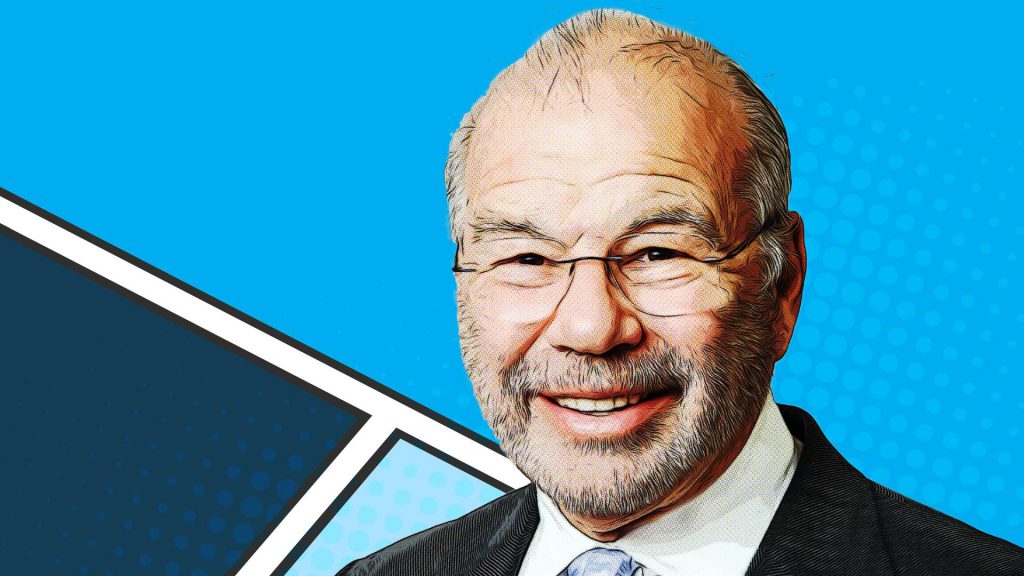Share This
Related Posts
Tags
Changemakers Series
By Nik Edlinger on May 26, 2020 in People
Changemakers is back for 2020 with a whole new class of senior living leaders!
Published by Senior Housing News (SHN) and sponsored by Yardi, the series spotlights industry pioneers who’ve taken unique approaches towards shaping the future of senior living. And this time around, these are also leaders who’ve shown what it takes to safely navigate their communities through the current health care crisis.

Michael Schonbrun
For the first inductee, meet Michael Schonbrun, founder and CEO of Balfour Senior Living. Schonbrun got his start in senior living while researching communities for his mother to live in. He decided he wanted to build one that she herself would love. So in 1997, he founded Balfour in Colorado, and the company has grown steadily since. They now have nine locations, with three more under construction.
Prior to senior living, Schonbrun had spent a decade in charge of National Jewish Health, a leading respiratory clinical and health care research center. That experience has helped position Balfour well for the pandemic. From the first signs of trouble, Schonbrun and his team have taken the coronavirus seriously.
In this excerpt from the SHN interview, see how Schonbrun’s unique background and proactive measures have kept Balfour’s residents and staff safe.
How has COVID-19 impacted Balfour and influenced your thinking — and the industry’s? Do you think people are going to see more value in having on-site health care?
The answer to that last question is yes. My first 10 years after getting out of law school I spent in the public health and health care regulatory environment. I think one of the benefits of COVID-19 — if you want to call it that — is that there’s going to be a willingness to invest in public health and to appreciate that, as much as an individualistic society America is, that there are things that the government alone can do.
That means there will be more investment in that work and sector, whether it’s totally a governmental one or through public-private partnerships. I think that’s going to come. I think the COVID experience is going to mark permanent change in American life and investments.
One of the interesting questions right now as we speak, and this may be dated by the time this is published, is whether folks are going to feel more safe in their own homes or more safe in a community that has care partners and that is taking the kinds of precautions we are with cleaning and isolation and preventing visitors from coming in or tracking in the virus.
In terms of the specific question, we were very early implementing a series of steps ahead, frankly, of what the CDC was recommending. We did not allow visitors in, and in some cases, we had family members coming from out of state flying in to see their parents and unfortunately we were not able to reach out to them quickly enough to prevent them from making that trip. We had to turn them away at the door. [Early on, we had] our vendors leaving packages outside the building [and started] taking temperatures of the residents twice a day.
At the moment, knock on wood, we have no cases in any of the Balfour communities, and none among our care staff. We’ve made arrangements, I should say, for daycare for our care staff if they have young children at home, which of course many do, at our expense. Our new employees now immediately are getting health insurance coverage on day one rather than the beginning of the next month after they join us.
We’ve actually been reaching out to local restaurants and hotels saying, “If you’re losing hours or, in fact, have lost your job or been put on a cutback, consider coming to work for us.” Because labor has been such a shortage in the industry, we’re believing that we may be able to pick up some talent going forward, who would find that our work is more satisfying than where they were, and that our pay rates are comparable. We’re making those steps.
We’re obviously still in the early stages of this. Who knows how it’s all going to play out. I’m hopeful we can keep COVID-19 away from any of our residents, but one has to be realistic. If every prediction is half the population in the country is going to come down with this, then it’s hard to see how we’re going to totally dodge the bullet. We’re going to do our damn best to do that.
Do you think senior living is changing fast enough these days?
COVID changes everything when you say “these days.” I do think, as an industry, we have to recognize that the boomers are going to be a much more discerning group than the World War II Greatest Generation. Some things can be changed more quickly. Dining and transportation. People who have a 20-year-old building are going to be hard-pressed to change the bones of the building. It could be a challenge.
Obviously, the amount of new construction that’s come on has raised the question of, what does that do to the more obsolete buildings? They’re maybe going to have to cut pricing and yet still have to pay more and more for their staff. They’re in a hard place.
We have some buildings that are 20 years old, we have some that are 10, and then there are ones that are just the last couple of years. So, we’re going to be facing those challenges as well. We’ve been refurbishing and trying to improve the dining experience, the transportation — those kinds of things that can be done even if the physical plant is a bit dated. I guess the question is, are people making those investments or not?
Read the full interview with Michael Schonbrun on SHN.
